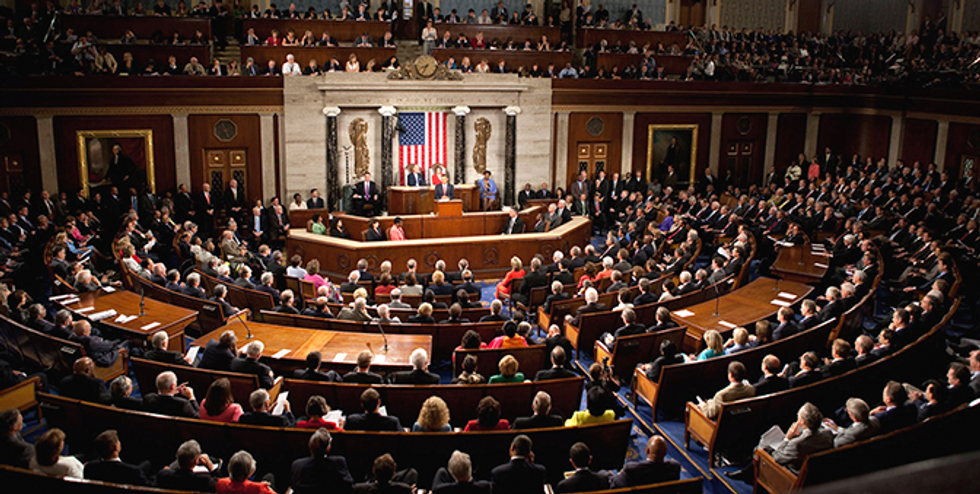
© 2024 Blaze Media LLC. All rights reserved.
Tuesday night, the House Freedom Caucus urged Republican leadership to cancel the August recess and keep Congress working on President Trump’s priorities.
With the Obamacare repeal legislation’s failure to launch and tax reform delayed, the GOP is fighting perceptions of being a do-nothing Congress. During their weekly meeting, the conservatives in the Freedom Caucus adopted the official position that Congress should work through its August recess, Politico reports.
“We need to work through August recess to get everything done,” said Freedom Caucus Chairman Mark Meadows, R-N.C., after the meeting. “We believe that we need to stay through August to get through tax reform… and get our appropriations done.”
There are seven weeks remaining before Congress is scheduled to go on vacation in August. To many working Americans, this may seem like an odd problem for Congress to have. Why should they need to cancel a recess to get their work done?
Let’s put Congress’ work schedule in perspective. Right now, 157 days have passed since Congress began its session in January 2017. In that time, the House of Representatives has only been in session 84 days. That means legislators have only been working for a little more than half the time you think they’ve been working. The U.S. Senate is no better, only having been in session for 82 days.
In terms of the average, normal, five-day work week ordinary Americans have, the House of Representatives has only worked eight full weeks since January. The Senate has only had four normal work weeks.
The reasons for this are varied. Members of Congress frequently travel home to meet with constituents, hold town halls, and fundraise. But the lack of any legislative achievement — the lack of results for the American people from Congress — has many wondering if Congress is taking too much time off.
To hedge accusations of failing to go to work, the Senate is planning to vote on its version of Obamacare reform sometime in June. The details of the plan remain unknown, however, and if conservatives push back against the Senate bill as they did with the House bill, the process could be delayed even further. Once September comes, the conversation in Washington D.C. will shift to the next continuing resolution and the debt ceiling, two big votes that will clog the legislative calendar.
The truth is, Congress may need to work through August just to make sure tax reform and Obamacare reform happen in 2017. Otherwise, Republicans will go into 2018 campaign season without any accomplishments to show voters.
Want to leave a tip?
We answer to you. Help keep our content free of advertisers and big tech censorship by leaving a tip today.
Want to join the conversation?
Already a subscriber?
more stories
Sign up for the Blaze newsletter
By signing up, you agree to our Privacy Policy and Terms of Use, and agree to receive content that may sometimes include advertisements. You may opt out at any time.
© 2024 Blaze Media LLC. All rights reserved.
Get the stories that matter most delivered directly to your inbox.
By signing up, you agree to our Privacy Policy and Terms of Use, and agree to receive content that may sometimes include advertisements. You may opt out at any time.



